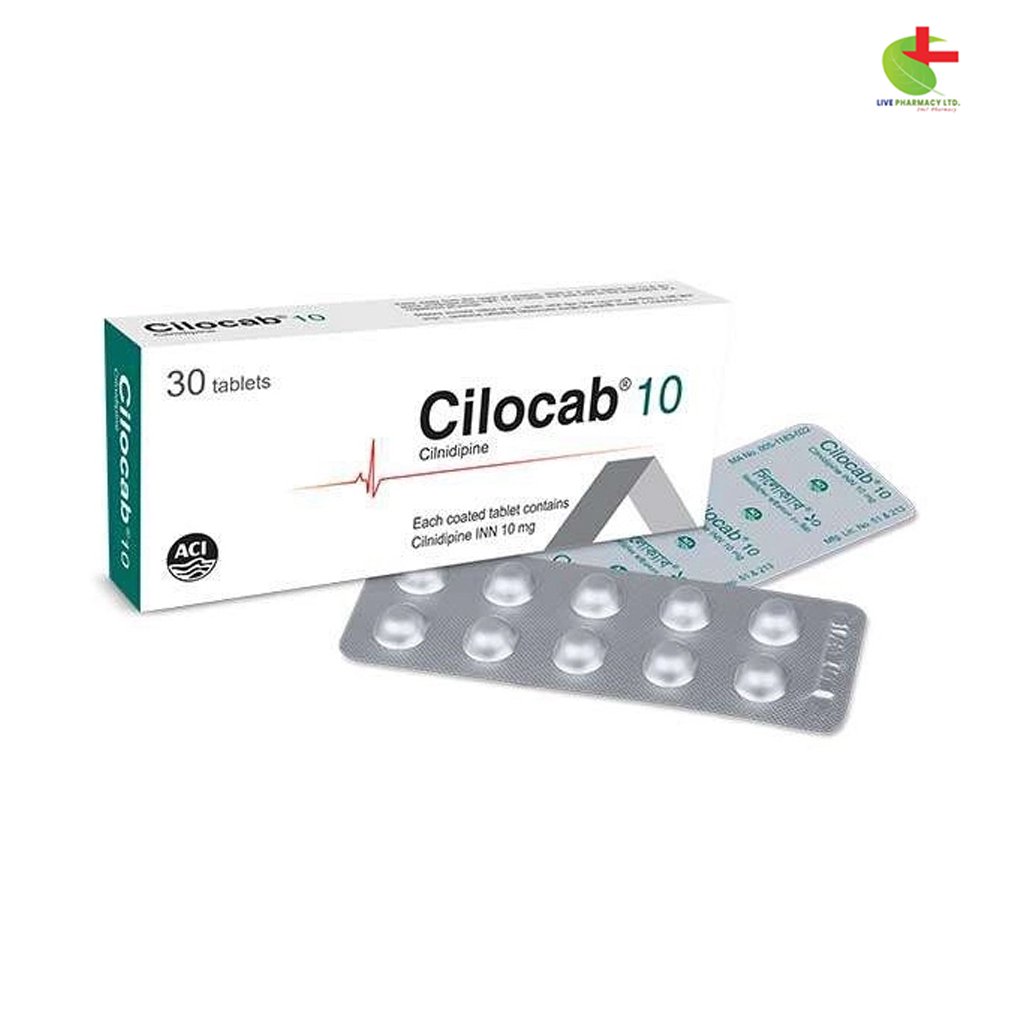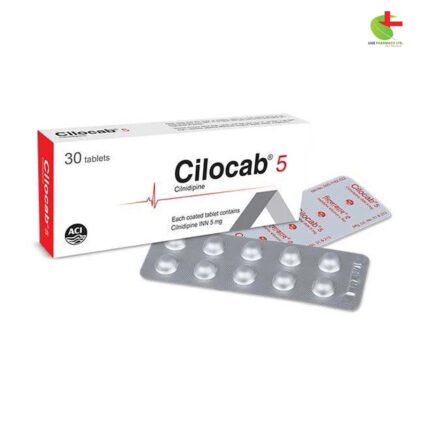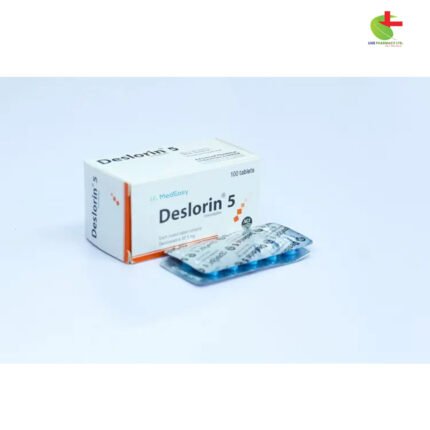Cilocab 10
100.00৳ Strip
- Cilocab is used to manage hypertension and protect vital organs, especially in elderly patients, those with diabetes, and individuals with chronic kidney disease.
- It works by relaxing blood vessels through the inhibition of calcium influx, helping to lower blood pressure.
- Use Cilocab under the guidance of a healthcare provider, particularly for elderly patients and those with liver issues.
- Always follow prescribed dosages and precautions.
 Brand
Brand
|
ACI Limited |
|---|---|
 Generics
Generics
|
Cilnidipine |
 Type
Type
|
Tablet |
Indications
Cilocab is commonly prescribed for managing hypertension and protecting vital organs from damage. It is particularly beneficial for elderly patients, individuals with diabetes, and those suffering from albuminuria. Cilocab is also increasingly used in patients with chronic kidney disease to support their health and improve outcomes.
Hypertension, or high blood pressure, occurs when excessive pressure is exerted on the blood vessels due to the force of the blood pumped from the heart. This continuous strain can lead to damage within the blood vessels, posing serious health risks.
Always consult a registered healthcare provider before using any medication.
Pharmacology
Cilnidipine, the active ingredient in Cilocab, is a dihydropyridine calcium-channel blocker. It works by binding to the L-type voltage-dependent calcium channels, reducing calcium ion influx across vascular smooth muscle cells, leading to muscle relaxation and vasodilation. This process helps lower blood pressure.
Additionally, Cilnidipine blocks calcium influx through N-type voltage-dependent calcium channels in sympathetic nerve cells, reducing the release of norepinephrine and inhibiting reflex heart rate increases caused by blood pressure reduction.
Dosage & Administration
- Adults: The recommended dose is 5-10 mg once daily after breakfast. The maximum dose should not exceed 20 mg once daily.
- Pediatric Use: The safety of Cilnidipine in children has not been established.
- Elderly Use: Due to a heightened sensitivity to hypotension, treatment should begin with the lowest possible dose (5 mg) for elderly patients.
Always follow the guidance of a registered healthcare provider before starting any medication.
Drug Interactions
Cilocab may interact with other medications that lower blood pressure, such as anti-hypertensive drugs and antipsychotics. It can also interact with medications like quinidine, carbamazepine, phenytoin, rifampicin, cimetidine, and erythromycin.
Contraindications
Cilnidipine is contraindicated for individuals who have:
- Known sensitivity or allergy to Cilnidipine or any of its ingredients.
- Cardiogenic shock, recent myocardial infarction (MI), acute unstable angina, or severe aortic stenosis.
Side Effects
Common side effects of Cilocab may include:
- Dizziness, flushing, headache, hypotension, peripheral edema, palpitations, GI disturbances, increased urination frequency, lethargy, eye pain, and depression.
Pregnancy & Lactation
Cilnidipine should not be used during pregnancy or in women who may become pregnant. It is also not recommended for breastfeeding mothers unless absolutely necessary. If the medication is required, breastfeeding should be discontinued.
Precautions & Warnings
Cilocab should be used cautiously in patients with:
- Severe hepatic dysfunction
- A history of significant adverse reactions to calcium channel blockers
When discontinuing the medication, it is crucial to gradually reduce the dosage under close medical supervision.
Therapeutic Class
Cilocab belongs to the class of calcium-channel blockers, commonly used for managing hypertension and related conditions.
Storage Conditions
Store Cilocab in a cool, dry place, below 30°C. Keep the medication protected from light and moisture, and out of reach of children.













Reviews
There are no reviews yet.